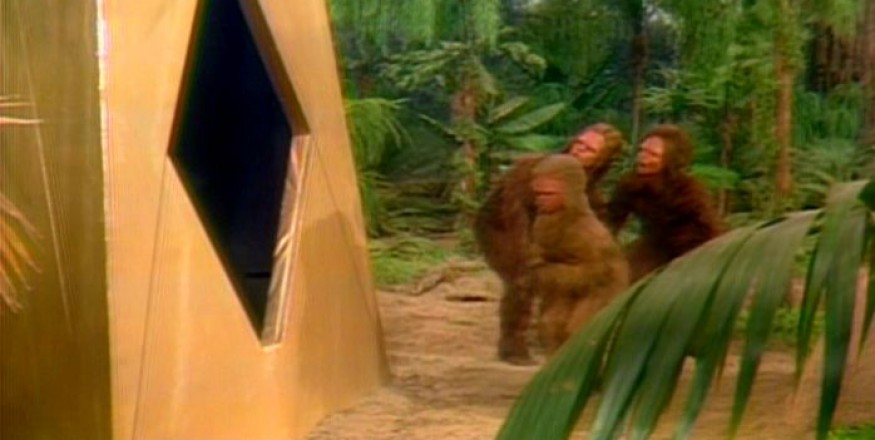No, they were not yet finished with Jupiter. Far behind, the two probes that Pesquisador had launched were making contract with the atmosphere.391Please respect copyright.PENANAZwBjcH1ntE
One was never heard from again; presumably it made too steep an entry, and burned up before it could send any information. The second was more successful; it sliced through the upper layers of the Jovian atmosphere, then skimmed out once again into space. As had been planned, it had lost so much speed by the encounter that it fell back again along a great ellipse. Two hours later, it reentered atmosphere on the daylight side of the planet--moving at seventy thousand miles per hour.
Immediately, it was wrapped in an envelope of incandescent gas, and radio contact was lost. There were anxious minutes of waiting, then, for the two watchers on the control deck. They couldn't be sure that the probe would survive, and that the defensive ceramic shield wouldn't completely burn away before braking had finished. If that happened, the instruments would be vaporized in a fraction of a second.
But the shield held long enough for the glowing meteor to come to rest. The charred fragments were jettisoned, the robot thrust out its antennas and started to peer around with its electronic senses. Aboard Pesquisador, now almost 1/4 of a million miles away, the radio began to bring in the first authentic news from Jupiter. The thousands of pulses pouring in every second were reporting atmospheric composition, pressure, temperature, magnetic fields, radioactivity, and dozens of other factors that only the experts on Earth could decipher. However, there was one message that could be understood instantly; it was the TV picture, in full color, send back by the falling probe.
The first views came when the robot had already entered the atmosphere, and had discarded its defensive shell. Nothing was visible save a yellow mist, flecked with patches of scarlet that moved past the camera at a dizzying rate--streaming upwards as the probe fell at several hundred miles and hour.
The mist grew thicker; it was impossible to guess whether the camera was seeing for ten inches or ten miles, because there were no details on which they eye could focus. It seemed that, so far as the TV system was concerned, the mission was a failure. The equipment had worked, but there wasn't anything to see in this foggy, turbulent atmosphere.
And then, quite abruptly, the mist vanished. The probe must've fallen through the base of a high layer of cloud, and come out into a clear zone---perhaps a region of almost pure hydrogen with only a sparse scattering of ammonia crystals. Though it was still quite impossible to judge the scale of the picture, the camera was obviously seeing for miles.
It was a scene so alien that for a moment it was nearly meaningless to eyes used to the colors and shapes of Earth. Far, far below lay an endless sea of mottled gold, scarred with parallel ridges that might've been the crests of gigantic waves. But there was no movement; the scale of the scene was too immense to show it. And that golden vista couldn't possibly have been an ocean, for it was still high in the Jovian atmosphere. It could only have been another cloud layer.
Then the camera caught, tantalizingly blurred by distance, a glimpse of something very strange. Many miles away, the golden landscape reared itself into a curiously symmetrical cone, like a volcanic mountain. Around the summit of that cone was a halo of small, puffy clouds---all about the same size, all quite distinct and isolated. There was something disturbing and unnatural about them---if, indeed, the word "natural" could ever be applied to this awesome panorama.
Then, caught by some turbulence in the rapidly thickening atmosphere, the probe twisted around to another quarter of the horizon, and for a few seconds the screen showed nothing but a golden blur. Presently it stabilized; the "sea" was much closer, but as enigmatic as ever. One could now observe that it was interrupted here and there with patches of darkness, which might've been holes or gaps leading to still deeper layers of the atmosphere.
The probe was destined to never reach them. Every mile, the density of the gas surrounding it had been doubling, the pressure mounting as it sank deeper and deeper toward the planet's hidden surface. It was still high above that mysterious sea when the picture gave one premonitory flicker, then vanished, as the first explorer from Earth crumpled beneath the weight of the miles of atmosphere above it. It had given, in its short life, a glimpse of maybe one millionth of Jupiter, and had barely approached the planet's surface, hundreds of miles down in the deepening mists. When the picture faded from the screen, Dhala and Quarlos could only sit in silence, turning the same thought over and over again in their brains.391Please respect copyright.PENANAfS38mIztjI
The ancients had, indeed, done better than they knew when they named this planet after the king of all the gods. If there was life down there, how long would it take just to locate it? And after that, how many centuries would pass before men could follow this first pioneer, and in what kind of a ship?
But these matters were now no concern of Pesquisador and her crew. Their goal was an even stranger planet, almost as twice as far from the Sun---across another half billion miles of comet-haunted emptiness.391Please respect copyright.PENANAWxRxoiq1bB






















